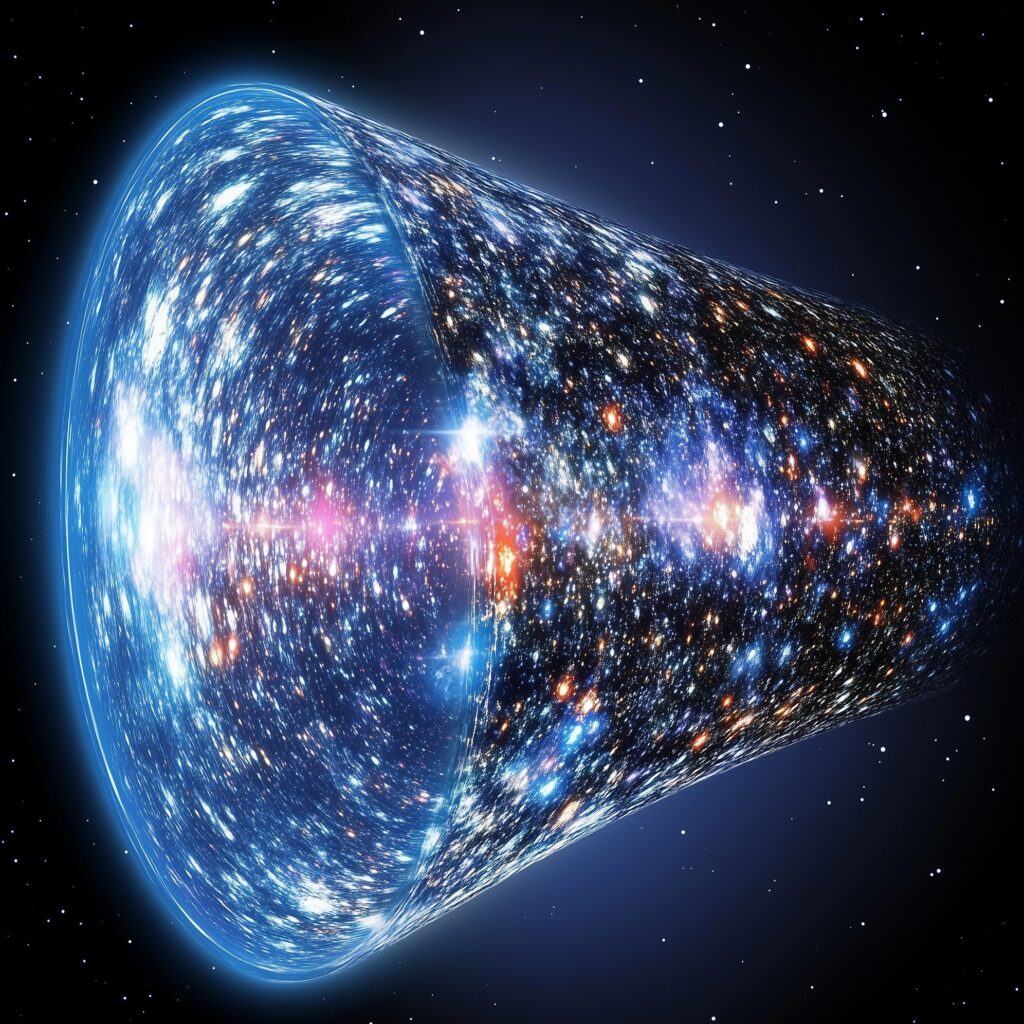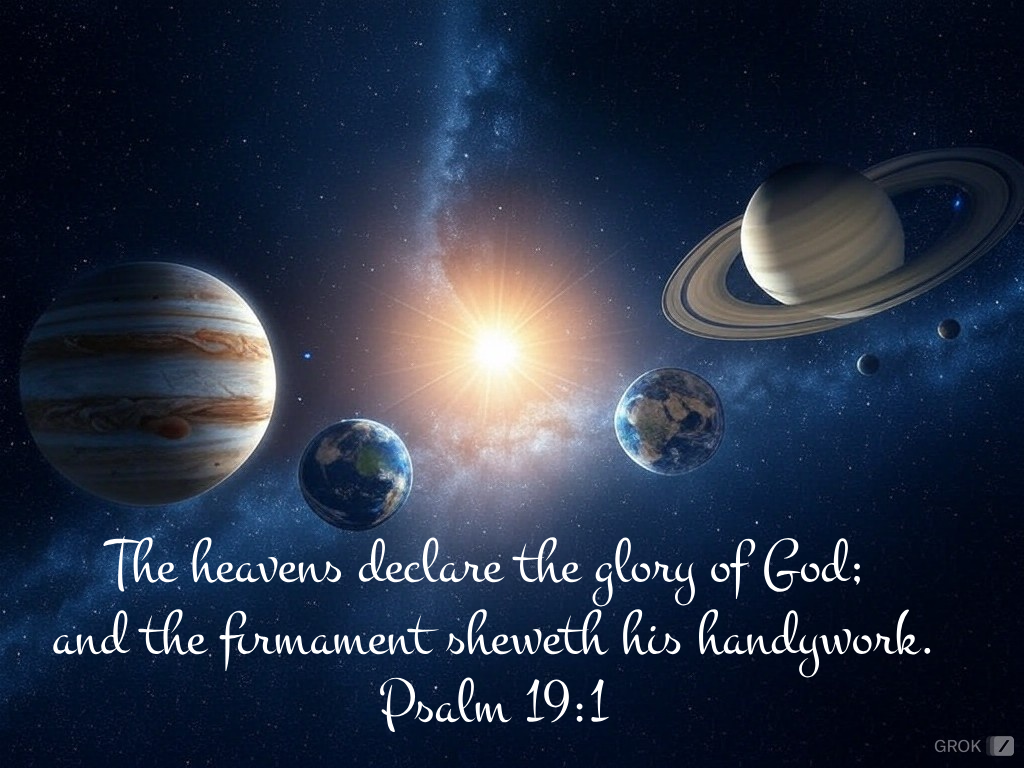
The following was posted on Facebook on December 18, 2024, by Hashem Al-Ghaili:
James Webb confirms there’s something seriously wrong with our understanding of the universe:
In a striking discovery, James Webb and Hubble space telescopes have confirmed that the universe is expanding at varying rates depending on the observation point, which challenges our current understanding of the cosmos.
This discrepancy is known as the Hubble Tension. It was first observed by the Hubble Space Telescope in 2019 and further confirmed by the James Webb Space Telescope in 2023, with recent combined efforts by both telescopes now eliminating any doubts about measurement errors.
The Hubble Tension arises from a conflict between two ways of measuring the universe’s expansion rate.
One method looks at the early universe, relying on the cosmic microwave background — the ancient afterglow of the Big Bang — to calculate the expected expansion.
The other method focuses on the more recent universe, utilizing telescopes to observe stars and galaxies. The problem is, these two methods are yielding vastly different results. It’s as if the universe has subtly changed its rules between its infancy and the present day. By observing over a thousand Cepheid stars in galaxies up to 130 million light-years away, the researchers have confirmed the reliability of Hubble’s measurements across the cosmic distance ladder, thus ruling out measurement error as a cause for the Hubble Tension and suggesting a profound mystery at the core of our understanding of the universe’s expansion.
Given the recent findings from the James Webb and Hubble Space Telescopes regarding the Hubble Tension, one could argue that the Biblical narrative of creation deserves reconsideration alongside the variety of scientific theories like the Big Bang, Steady State, and Multiverse theories. Here’s a logical case for why:
Limitations of Current Scientific Models:
The Hubble Tension represents a significant discrepancy in our understanding of the universe’s expansion rate. If the two gold-standard methods for measuring this rate give different results, it suggests there might be fundamental flaws or missing pieces in our current cosmological models. This echoes the humility expressed in scientific inquiry where theories are subject to revision or even replacement when new evidence arises. The Biblical narrative, while not scientific in nature, offers a different perspective on the origin of the universe that does not rely on these potentially flawed models.
Philosophical and Metaphysical Considerations:
Science deals with the “how” of the universe’s beginnings, but the Biblical narrative addresses the “why.” It provides a metaphysical explanation that includes purpose, morality, and the relationship between the creator and creation. In a world where science cannot fully explain the observed phenomena like the Hubble Tension, considering narratives that encompass both physical and metaphysical explanations might offer a more holistic understanding of existence.
Historical and Cultural Context:
The Biblical account has been a significant part of human culture and history, influencing countless civilizations and individuals in terms of ethics, philosophy, and science itself. While not empirically verifiable in the same way scientific theories are, their cultural impact and the philosophical questions raised about creation, life, and order are worth considering, especially when scientific explanations are incomplete or in flux.
Science as a Journey, Not a Destination:
Science is a process of discovery, and the current crisis with the Hubble Tension shows that our understanding of the universe is still evolving. The Big Bang Theory, while widely accepted, has faced challenges before, and might be in need of revision or expansion. Similarly, the Steady State and Multiverse theories are speculative and have their own set of problems. The Biblical narrative, in this context, can be seen not as competing with science but complementing it by proposing that the universe’s origin might involve elements beyond our current scientific grasp.
Openness to Mystery:
The Hubble Tension suggests there might be aspects of the universe we do not yet understand—perhaps even aspects that challenge our foundational scientific assumptions. The Biblical narrative, with its account of creation by a purposeful act of a divine being, invites us to ponder these mysteries in a different light. This narrative suggests that not all answers are accessible through empirical science alone and that some truths might be grasped through faith, philosophy, or spirituality.
Interdisciplinary Dialogue:
The intersection of science and religion has historically led to fruitful dialogue and insights. The current cosmological conundrums might benefit from such an approach, where the scientific community could engage with theological perspectives not to disprove science but to explore the full spectrum of human understanding. This dialogue could lead to new ways of thinking about the universe’s origins that are neither purely scientific nor solely religious.
In conclusion, while the Biblical narrative does not provide scientific answers as understood in modern terms, the unresolved questions and tensions in cosmology, exemplified by the Hubble Tension, suggest that our understanding of the universe’s beginning might still be incomplete or misdirected. It’s therefore reasonable to consider the Biblical account not as a scientific theory but as a cultural, philosophical, and possibly even scientific catalyst, encouraging us to question our assumptions and explore the vast array of possibilities about how and why our universe came to be.

Here is a concise, well-reasoned case supporting the Creationist view of the universe’s beginning:
Philosophical and Logical Argument for a First Cause:
The principle of causality suggests that everything that begins to exist has a cause. If the universe had a beginning, as both scientific evidence and the Big Bang theory suggest, it logically follows that there must be a cause outside of itself. Creationism posits that this cause is an intelligent, purposeful being—God. This aligns with the philosophical argument for a “First Cause” or “Unmoved Mover,” a concept not alien to traditional Western philosophy.
Complexity of Life and the Universe:
The intricate design and complexity observed in biological systems, from DNA’s information-rich code to the fine-tuning of physical constants that allow life, suggest an intelligent design rather than random processes. Creationism argues that such complexity and order are better explained by an intelligent creator than by undirected natural processes over time, especially when considering the improbability of life emerging from non-life without guidance.
Limitations of Naturalistic Explanations:
Current scientific theories, including the Big Bang, while explaining much about the universe’s evolution post-beginning, do not address the ultimate origin of matter, energy, space, and time itself. Creationism fills this explanatory gap by asserting that an eternal, uncreated being created the universe ex nihilo (out of nothing), which is consistent with many religious texts’ descriptions of creation.
Historical and Cultural Impact:
The Creationist narrative has profound historical and cultural significance, influencing art, law, ethics, and science itself for millennia. This widespread acceptance and the moral and ethical frameworks it has provided suggest a deep human intuition or resonance with the idea of a purposeful creation, which should not be dismissed merely because it does not fit within current scientific methodologies.
The Argument from Personal Experience:
Many people report personal experiences or spiritual encounters that they interpret as evidence of a creator. While this is subjective, the consistency and universality of such experiences across cultures provide anecdotal support for a creator, suggesting there might be more to the universe’s origin than what science alone can verify.
Consistency with Human Nature and Morality:
The Creationist view often comes with a moral framework suggesting that humans have intrinsic value and purpose, derived from being made in the image of a creator. This view can explain the universal human quest for meaning, morality, and purpose, which some argue is less satisfactorily explained by naturalistic worldviews where life is merely the result of random processes.
In summary, while Creationism does not provide empirical evidence in the scientific sense, it offers a coherent metaphysical and philosophical framework that explains the origin, complexity, and purpose of the universe in a way that resonates with human experience, moral intuitions, and the need for a first cause. This perspective invites consideration alongside scientific theories, not as a competitor but as a complementary narrative that addresses aspects of human existence that science cannot fully explore.
